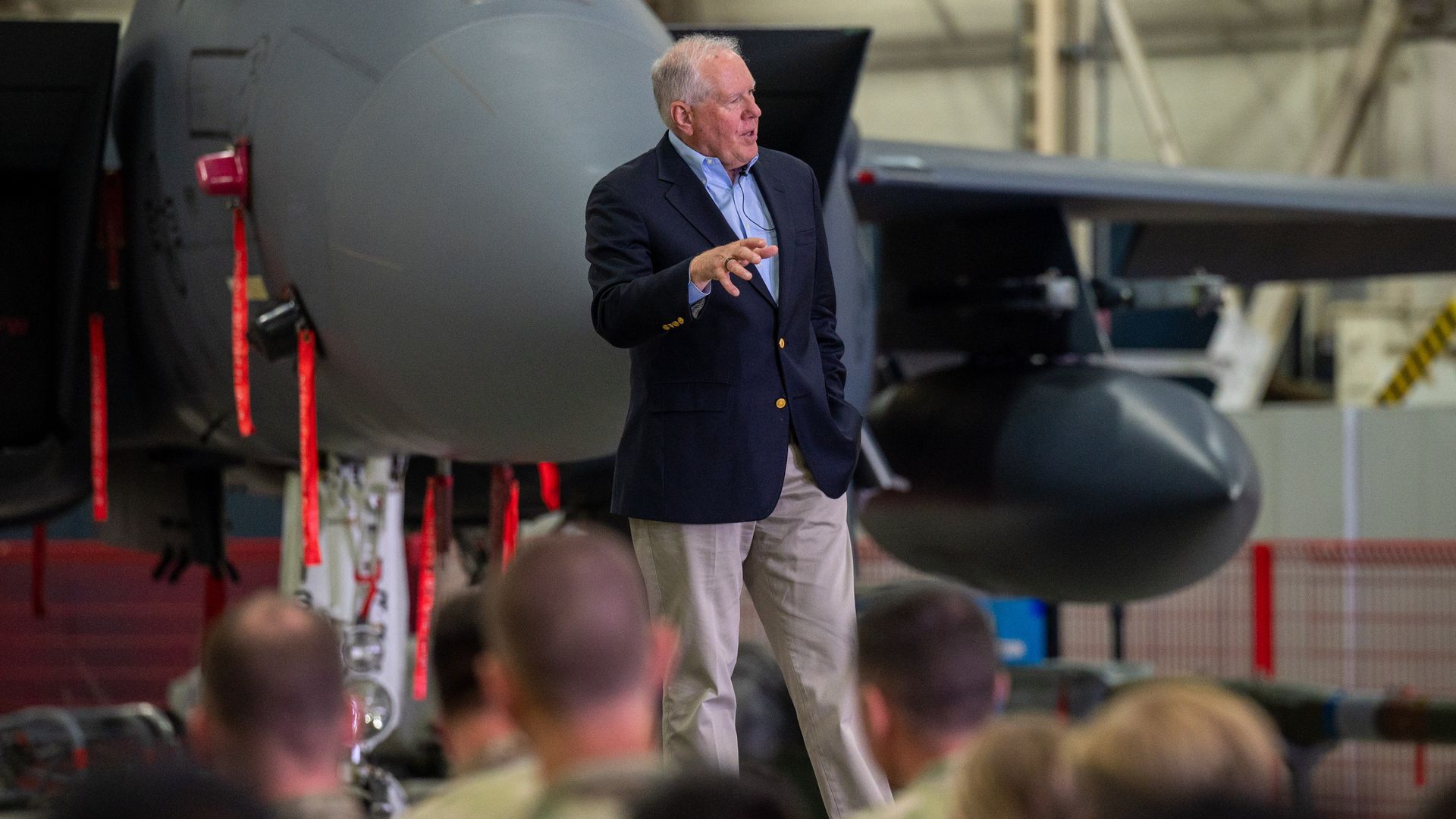
[Ryan Robertson]
IF THIS YEAR’S GATHERING IN COLORADO HAD A ONE-WORD DESCRIPTION IT WOULD BE CHANGE. IF IT WERE THREE WORDS IT WOULD BE CHANGE ON HOLD. IN THE SYMPOSIUM’S OPENING EVENT LEADERS FROM THE AIR AND SPACE FORCES LAID OUT THEIR PLANS FOR PREPARING THEIR TROOPS FOR CONSTANTLY EVOLVING THREATS FROM SEVERAL CORNERS OF THE WORLD. UNFORTUNATELY, IN THEIR VIEW, THERE’S ONE MAJOR OBSTACLE IN GETTING THAT WORK STARTED IN FULL. CONGRESS.
[Air Force Secretary Frank Kendall]
Ladies and gentlemen, we are out of time. We are out of time. We are out of time….because for at least two decades, china has been building a military that is designed, purpose-built to deter and defeat the United States if we intervene in the Western Pacific.
[Ryan Robertson]
FROM THE VERY START OF THIS YEAR’S AFA WARFARE SYMPOSIUM, AIR FORCE SECRETARY FRANK KENDALL MADE IT CLEAR THE U-S CAN’T AFFORD TO PUT OFF MILITARY MODERNIZATION ANY LONGER.
[Air Force Secretary Frank Kendall]
The United States does not seek a conflict. We have every hope that one can be avoided. We are however involved in a competition, an enduring competition, that could turn into a conflict at any time. We can no longer regard conflict as a distant possibility, or a future problem that we might have to confront. The risk of conflict is here now, and that risk will increase with time.
[Ryan Robertson]
WHEN SECRETARY KENDALL CAME INTO OFFICE IN 2021… HE HIT THE GROUND RUNNING. OUTLINING WHAT HE CALLS OPERATIONAL IMPERATIVES. FACTORS THAT WOULD SHAPE HOW THE AIR AND SPACE FORCES WOULD INVEST THE MONEY FROM CONGRESS TO MAKE SURE BOTH BRANCHES ARE READY FOR A GREAT POWER COMPETITION WITH CHINA
[Air Force Secretary Frank Kendall]
that work had a major impact on the FOI 24 budget that was submitted a year ago. We’re still, by the way, waiting for the Congress to appropriate the FY24 funds that we need now to modernize the air and space forces and to defend the nation. Congress, if you’re listening, an FY24 appropriation would be very welcome, and once again, please do not subject us to a disastrous yearlong CR and sequestration.
[Ryan Robertson]
KENDALL SAYS FOR THE ENTIRE TIME HE’S BEEN THE SECRETARY OF THE AIR FORCE…CONGRESS HASN’T GIVEN THE AIR OR SPACE FORCES THE RESOURCES AND FUNDING NEEDED TO BE COMPETITIVE.
UNDER A CONTINUING RESOLUTION… SERVICE BRANCHES ARE FORCED TO OPERATE AT THE SAME SPENDING LEVELS AS THE PREVIOUS FISCAL YEAR. IT ALSO MEANS VIRTUALLY NO NEW SPENDING. SO NO NEW PROJECTS CAN START. NO NEW TRAINING CAN BEGIN…. NO MUCH-NEEDED MODERNIZATION EFFORTS.
[Air Force Special Operations Command Commander Lt. General Tony Bauernfeind]
With any sort of continuing resolution is that uncertainty of funding as it goes forward. In some cases with new starts, we fundamentally can’t even start the work we need to do. And so without that monetary aspect in place, we’re sitting on our hands and we’re not moving forward. Even with continuing resolution, the second aspect of it is are we going to overspend what we expect to get. So people tend to become more conservative, thereby pulling their punches a little bit in the execution of those resources. And both of those get solved with Congress’s guidance in the form of a budget.







